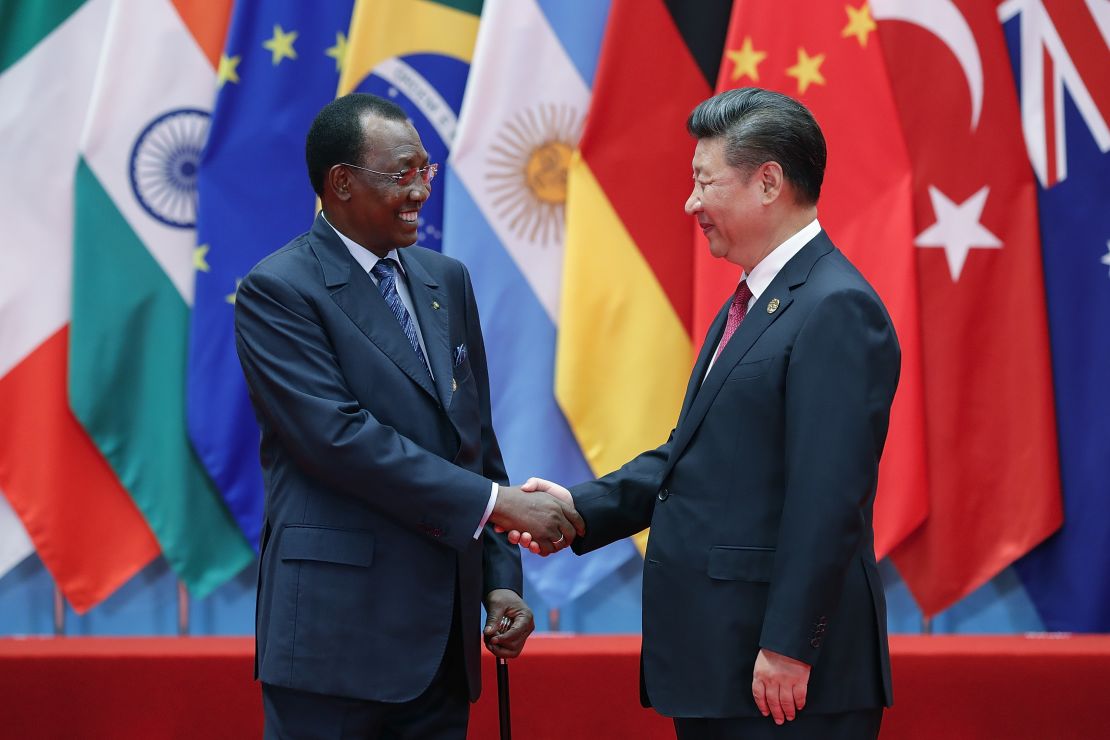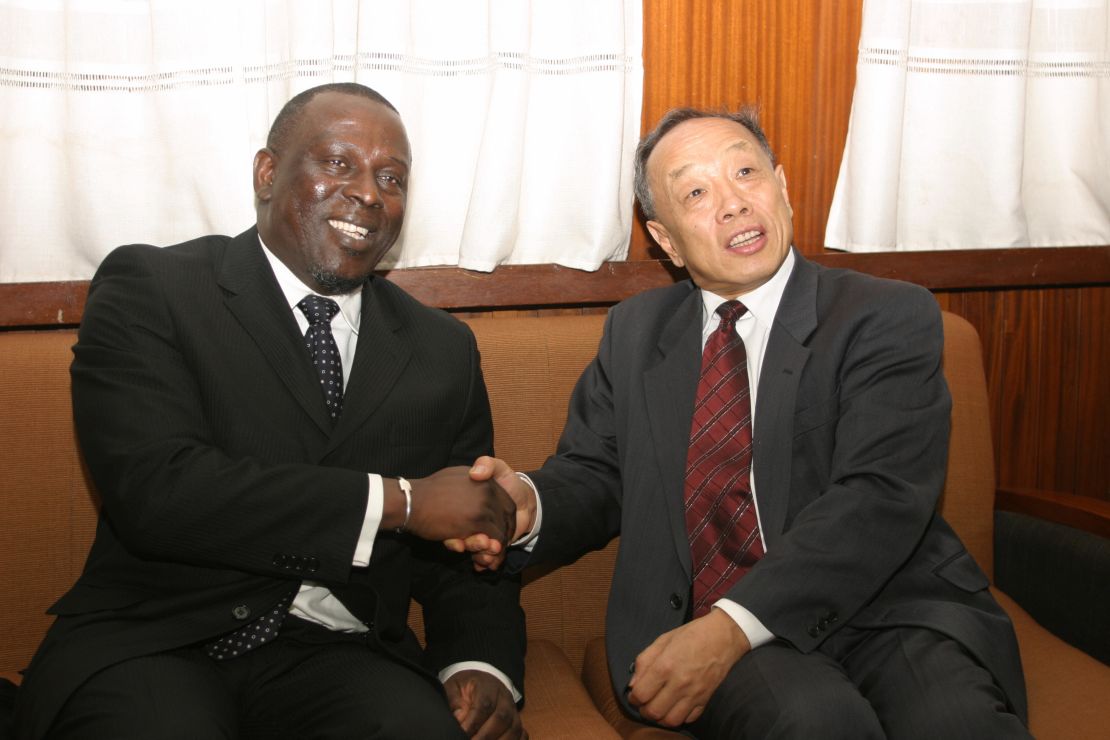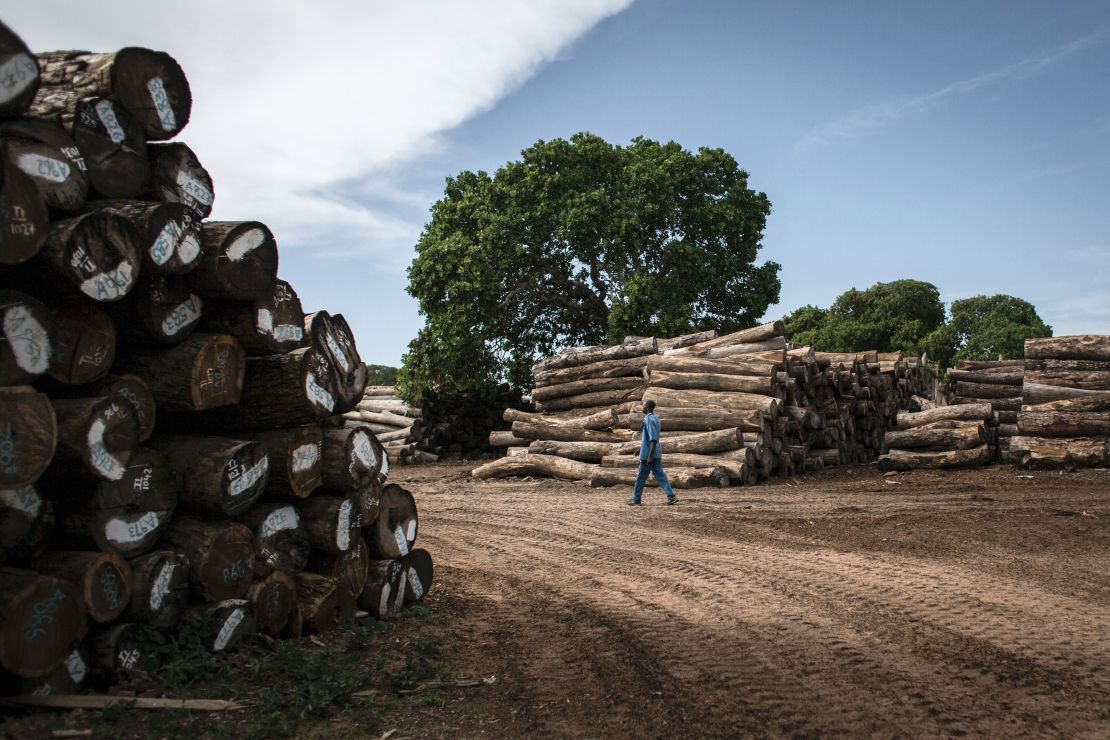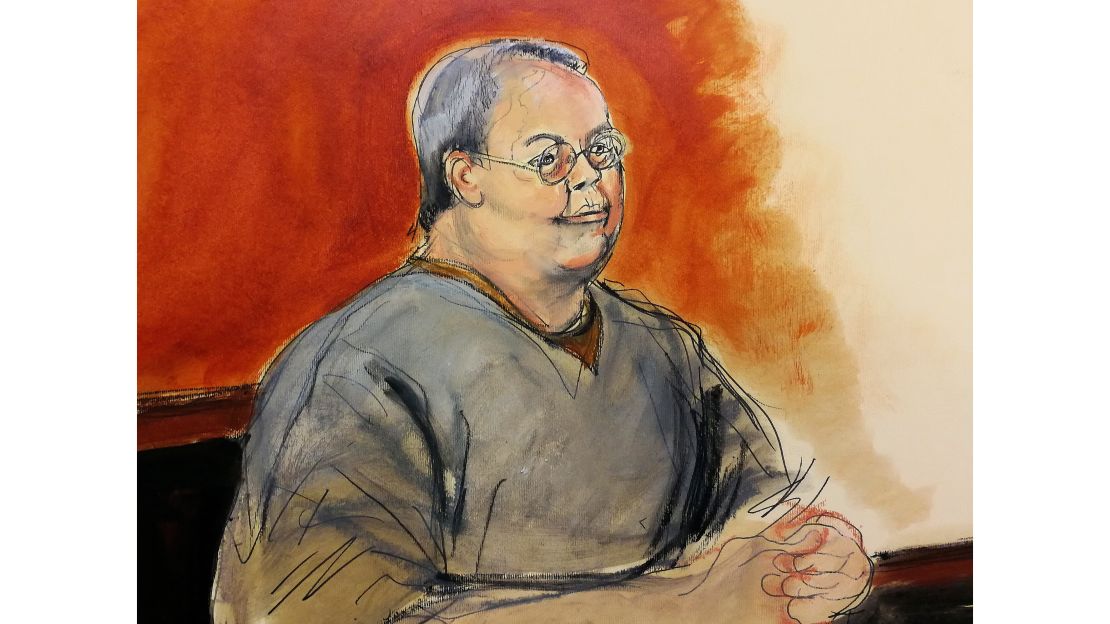Story highlights
Former Hong Kong home secretary Chi Ping Patrick Ho allegedly offered African leaders $2.9 million in bribes
The deals were plotted from the corridors of the United Nations in New York
The case gives rare insight into Chinese corruption in Africa
It sounds like a Hollywood movie. A respected Hong Kong financial magnate allegedly plans a clandestine meeting with the president of Chad in the middle of the dusty Sahara Desert, and offers him a $2 million gift to secure oil rights for a Chinese conglomerate.
In another scheme, Chi Ping Patrick Ho, according to United States prosecutors, sends the now foreign minister of Uganda, who was then the president of the UN General Assembly, a $500,000 bribe for business advantages, through the New York banking system.
All this was allegedly planned under the noses of the world’s top diplomats in the corridors of the United Nations in New York, where Ho ran an energy NGO.

In November 2017, Ho and Cheikh Gadio – the Senegalese failed presidential candidate and former foreign minister, who allegedly arranged the deals – were arrested in New York on multiple bribery and money laundering charges. This week, the trial date was set for November 5, 2018. Aged 68 years old and in ailing health, Ho risks spending his remaining years behind bars. He has pleaded not guilty.
This case, however, is about more than one man’s spectacular fall from grace. It offers a rare window into Chinese corruption in Africa – something academics, politicians and business people have long suspected existed but found difficult to prove.
What’s more, with the mountain of evidence seemingly against the defendant, legal experts are wondering whether Ho might be asked to expose other corrupt parties to reduce his sentence.
China’s ‘competitive advantage’
Western companies in Africa have “long spoken of the competitive advantage Chinese companies have on the continent,” says Andrew Spalding, a professor at the University of Richmond and expert in anti-corruption law. “And the dramatic increase in China’s commercial presence tends to confirm it.”
China’s goods trade alone with Africa totaled $188 billion in 2015, compared with $53 billion for the US. As China has become the continent’s biggest economic partner, Chinese companies have found themselves operating in countries with high corruption ratings without domestic legislation to answer to. Thirteen Sub-Saharan African nations ranked in the bottom 30 of the 2016 Corruption Perceptions Index.
“If I am an American company and I want to do a deal, particularly in Africa and less developed areas, and I am approaching African officials but losing out because Chinese companies are bribing those officials, I am going to be irked,” says Rob Precht, president of New York-based legal think tank Justice Labs.
American and British companies have been living with the Foreign Corrupt Practices Act (FCPA) and the UK Bribery Act for years. Although China formally adopted a foreign bribery law to comply with the UN Convention Against Corruption in 2011, it has done “next to nothing to enforce it,” says Spalding. He adds: “The hope is that if Western companies continue to pressure overseas governments to change, that competitive advantage will eventually disappear.”
Chinese president Xi Jinping’s high-profile corruption crackdown at home virtually ignores foreign bribery, according to some observers. “For centuries, bribery has not even been considered a bad thing in China,” says Precht. “But as China becomes a partner in the world community, these issues are going to become more important.”
Before he became President of the United States, Donald Trump had slammed the FCPA for turning America into “the policeman for the world.” A foreigner in a different country who merely sends an email relating to corrupt practices through a US server can be prosecuted under the act. “Let them clean up their own act, we shouldn’t be cleaning up their act for them,” he told CNBC in 2012.
The prosecution of Ho, among others, seems to signal a change of heart for the president.
In November 2017, the US Department of Justice formalized a new anti-corruption policy prioritizing bringing cases against individuals rather than corporations. Heavy fines against companies, it said, only penalized shareholders.
US Deputy Attorney General Rod Rosenstein cited the conviction of one of the richest men in China, real estate magnate Ng Lap Seng, of bribing UN officials, as an early example of this strategy’s success. He thanked the governments of the United Kingdom, Brazil, Austria, Germany, the Netherlands, Singapore, and Turkey for helping the US to enforce this approach during a two-year trial period.
China was notably absent from that list.
How to bribe an African leader
If the emails and reports obtained by the FBI and presented in a court affidavit are to be believed, Ho and Gadio took remarkably few steps to cover their tracks. The pair documented their alleged plan so clearly it reads like a how to guide for bribing an African official.
Jackson Miller, a Washington-based China-Africa expert, says such flagrancy is often a response to the strength of local law enforcement mechanisms. “Most of the time, frankly, this much exists all over email because there are no established mechanisms working against that. No local compliance agency,” he says. “It’s crazy the information people leave on Facebook or Twitter even because they think that no one is looking.”
Ho first approached his “old friend” Gadio for a favor at the UN in late 2014, according to prosecutors. State-owned energy company China National Petroleum Corporation (CNPC) had been fined $1.2 billion by the Chad government for environmental violations, and its oil license there had been revoked. Ho allegedly asked Gadio – “a close friend” of the president of Chad – to help resolve the issue.
Before the fall out, CEFC Energy Company, a global corporation based in Shanghai with ties to the Communist Party, had hoped to embark on a joint venture with CNPC to enter the oil market in Chad. CEFC funded the energy think tank Ho represented at the UN, the China Energy Fund Committee.
Gadio allegedly immediately phoned “the big man,” which the FBI has taken to mean the president of Chad, Idriss Deby. He then allegedly got on a plane to present Deby with Ho’s offer of providing “secret or very confidential financial assistance for his political” support. Soon after, Chad commuted the CNPC’s fine to $400 million, according to the complaint. The prospect of a joint venture with CNPC, however, was seemingly off the table, so Ho allegedly decided to meet Deby himself to strike an independent oil deal for CEFC.
Ho and Gadio allegedly exchanged countless emails brainstorming the best way to discreetly enter Chad – they rejected Deby’s proposition of convening in the capital, N’Djamena, to avoid encountering “enemies and lobbyists,” according to court documents. Gadio allegedly suggested meeting in a “village in the middle of the desert,” and flying there directly from Ethiopia.
The group eventually met for two hours in November, prosecutors claim. Photographs of Ho and Gadio with Deby and three other unidentified people were allegedly emailed around after the trip.
After the meeting, Gadio wrote to Ho with astonishing honesty, according to court documents: “I have never heard a president, on the spot … make such a bold move by offering you without pre-conditions or any bargaining a bloc of oil wells … I strongly suggest … [you] make a financial offer to the president for the allocation of this huge bloc.”

When Ho allegedly responded by requesting a second meeting with Deby, Gadio put his foot down: “He will … think we are all talk and not actions … reward him with a nice financial package.” Ho took his friend’s advice, and drafted a letter to Deby expressing the energy company’s desire to make a $2 million “donation” that would be at his “personal disposal” to support “social and other programs as [he] see[s] fit],” according to the complaint.
Gadio rejected Ho’s initial draft (“this letter is not well written”), according to prosecutors, and finessed the language the alleged bribe should take. Gadio then allegedly delivered the offer to Deby via another Chad minister – simultaneously, allegedly negotiating his own fee up from $100,000 to $400,000. The pair agreed afterwards, according to court documents: “[This is] only the beginning of our relationship.”
Ho and Gadio’s lawyers declined to comment at this time. The Chinese Ministry of Foreign Affairs did not respond to multiple CNN emails asking it whether China intends to tighten foreign anti-corruption legislation.
CEFC did not respond to CNN’s emails, but last November it released a statement saying “CEFC China does not have any investment activities in Uganda. CEFC China’s investment project in Chad is only a financial investment in CPC Corporation, Taiwan. Therefore, it does not have any of the so-called ‘interest relationship’ with the Chadian government.”
CNN emails to the CNPC and the government of Chad also went unanswered. Last year, however, the government of Chad said in a statement: “Faced with this umpteenth false allegation, the government of Chad formally refutes this shameful fabrication.” The government of Uganda said in a statement that it was “erroneous” to say its current foreign minister Sam Kutesa, while serving as president of the UN General Assembly, was involved with the alleged bribery.
The elephant in the room
Precht says he has spoken to multiple “lawyers, academics and business people” who all said they had reason to believe Chinese corruption in Africa “is common.”
CNN also had conversations with several China-Africa experts who agreed, but explained that most professionals will not go on record about this (including themselves), or report on it, for fear of repercussions such as being banned from China. Furthermore, obtaining hard evidence is incredibly difficult and, often, resource intensive. As one expert noted, bribery is by its nature invisible.

Last month, however, Bangladesh announced it had canceled a road construction contract with a major Chinese company, and blacklisted it from future projects, amid allegations one of its employees had tried to bribe government officials, according to the Voice of America.
The Environmental Investigation Agency claimed that in 2013, 76% of all global timber exports from Mozambique were illegally cut in excess of reported harvests – and the vast majority of them went to China. The Mozambique government did not reply to a CNN email asking how it was combating this problem.
“I’m not saying that Americans or Europeans don’t commit corrupt acts, of course they do,” says Precht. “The question is what the norms are and whether or not you have systems in place to impose a painful penalty when corruption is discovered.”
The future
On December 18, 2017, the US government issued its indictment of Patrick Ho. Although he had been named on the complaint one month earlier, Gadio – who has lived legally in America since 2000 – was curiously no longer listed as a co-defendant. He remained under house arrest when CNN published this article.
There are parts of the complaint prosecutors might ask Ho or Gadio to elaborate on. In one section, for example, Gadio allegedly wrote that Deby had spoken to him about his government’s deal with CNPC, and “exposed me the real package.” Ho several times allegedly wrote that he needed to speak with “SH” – which the FBI has taken to stand for Shanghai – before making a decision.

Today, Ho sits in a high-rise Manhattan jail cell preparing for trial. His bail application to be released on a $10 million bond was rejected, as was his request to be put under house arrest with electronic tagging.
“His incentive to flee is massive,” assistant US Attorney Daniel Richenthal told the judge. “His ability to flee is massive.”
In the end, according to the complaint, CEFC did not pursue the oil field that the alleged $2 million bribe gave it access to. Instead, according to court documents, it paid $110 million to a Taiwan oil company for a 35% share of its oil rights in Chad.
It is an irony that Ho currently has plenty of time to appreciate.
